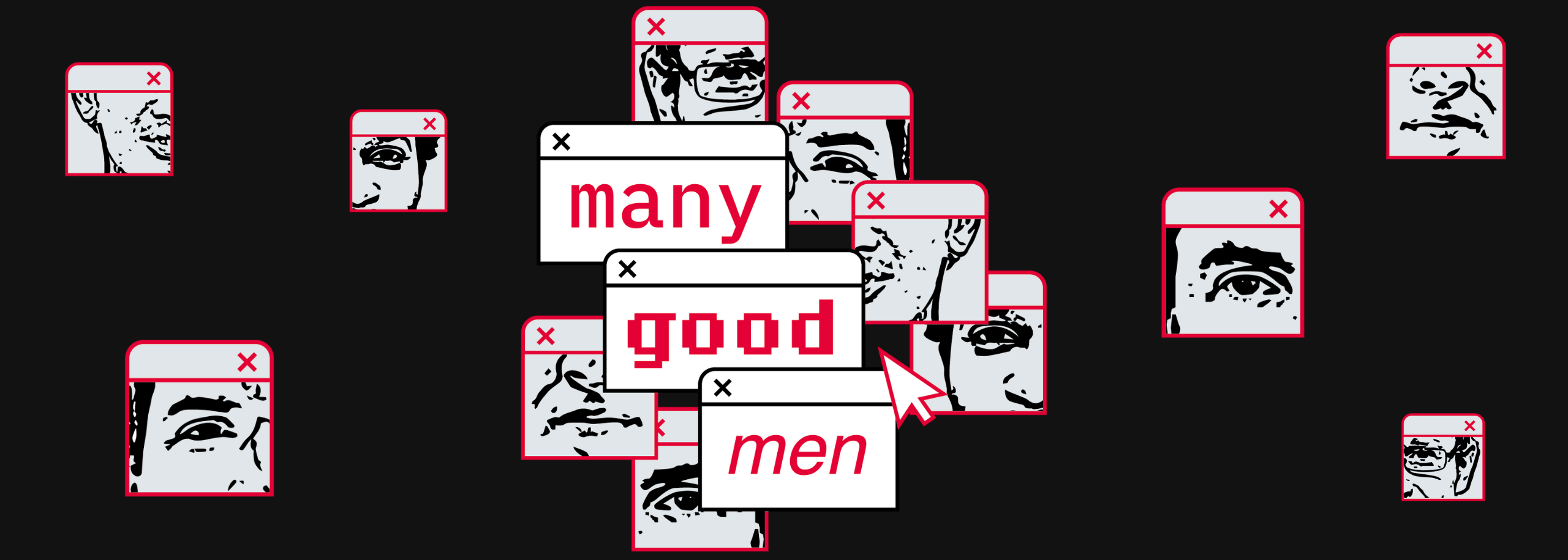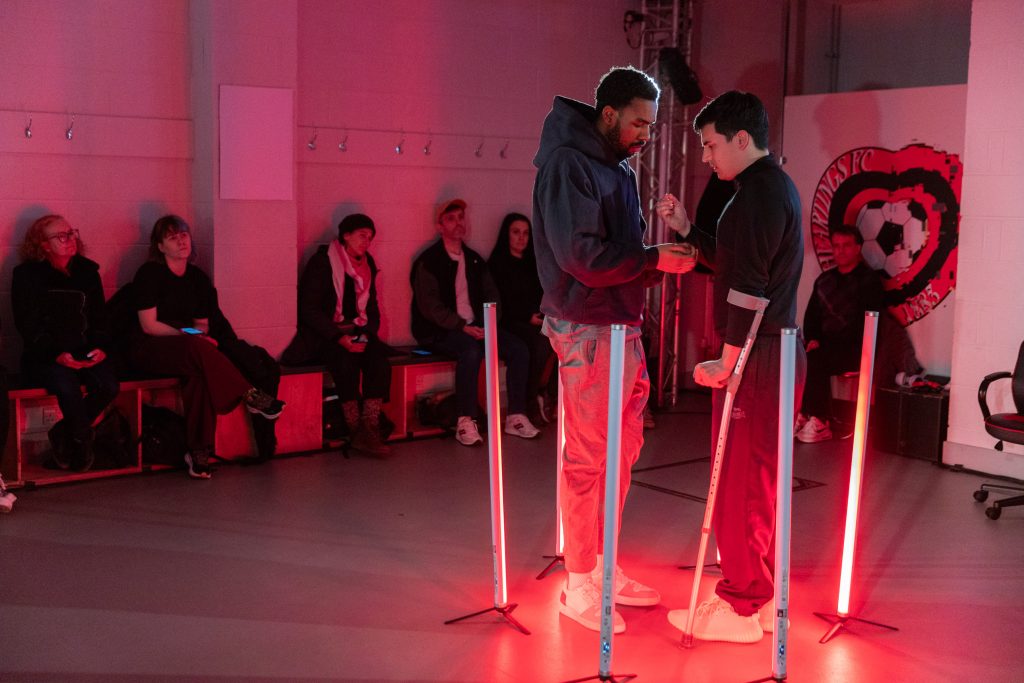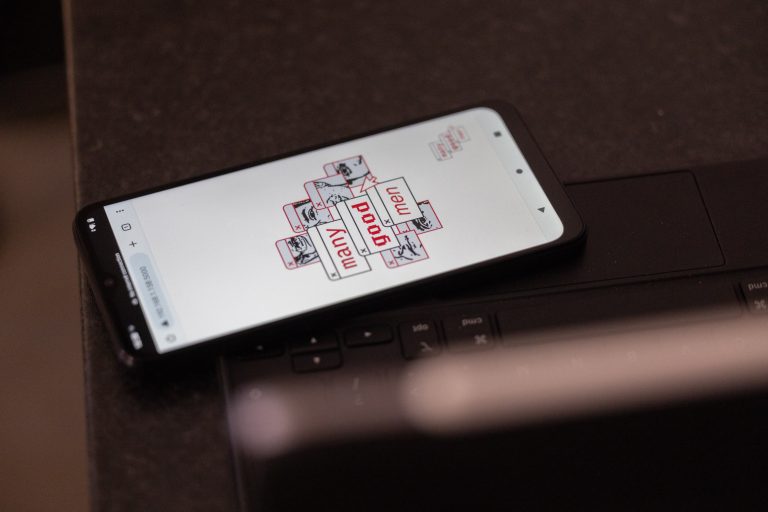
Overview
Many Good Men is a site specific play and a participant led project, which explores the
radicalisation of masculinity online.
Participants create a story about the radicalisation and weaponisation of masculine stereotypes and
tell it using a combination of digital tools, platforms and live performance.
The first iteration of this project resulted in a play that ran for three weeks in February 2024 in the locker rooms at hearts
football club.
Studio Autonomic was tasked with developing the means through which audiences could interact with the production,
facilitating a form "digital forum theatre".

Themes
Civic Digits describe the story as such "
The story begins: Two young football players are witness to an incel shooting incident in Edinburgh.
In their quest to find out what led to this mass murder they start to investigate the incel movement.
They both dive deep into the overwhelming online vortex of the ‘manosphere’ and one of them becomes radicalised.
Using digital forum theatre the audience are asked to find points on that journey where he could have been saved, and if not,
why not."

Interaction
To facilitate the interaction, Studio Autonomic made a polling system that allowed audience members to
intervene in the play.
On entry, audiences were handed mobile phones with a web application already opened on screen.
At various points during the production, polls appeared onscreen displaying options for audiences
to vote on that would change the course of the play.
After the voting period was completed, the results were projected on to a screen in the venue.
This also automatically triggered different sound, video and lighting changes in the space,
determined by the winning result of each poll.
Technology
The front end of the polling web application was created using javascript, HTML and CSS with
FLASK powering the backend.
Python was used to create an OSC server that allowed the show operators to control this application
using QLAB. A QLAB cue would be fired and then send and a new poll to all of the phones in the venue.
Votes would be collected for an allocated time period and then the results would be gathered
and the winning option would fire a specified cue in Qlab, affecting the sound, video and lights in the space.
The result was a system that produced indeterminacy in the production and gave audience agency to
direct events in the play.


